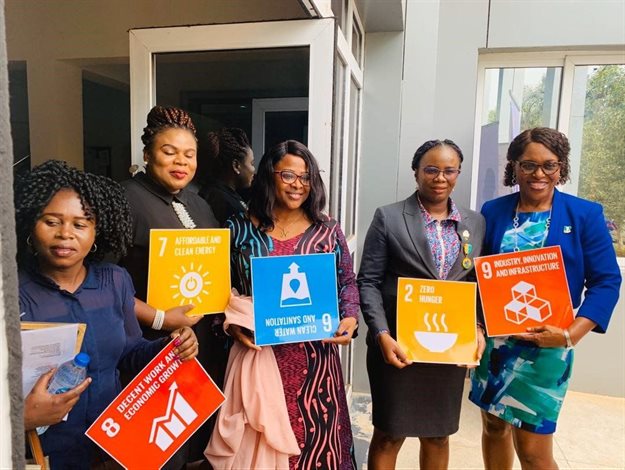






The symposium was organised by the Center for Economic and Leadership Development, an NGO in special consultative status with the United Nations, ECOSOC. In attendance was the wife of the deputy governor of Delta State, Dr Ebierin Otuaro; Omowunmi Olubunmi Ogunlola, a member of Nigeria's House of Representatives; Kashim Abdul Ali, immediate past president of COREN; Professor Tahir Mamman, vice chancellor of Baze University; and Angela Muruli, programme analyst, UN Women.
The convener of the symposium and the executive director of the Center for Economic and Leadership Development, Furo Ken-Giami, in her opening speech maintained that the statistics of females in critical STEM fields is alarming. "The need for this symposium cannot be overemphasised, the statistics of females in the critical STEM fields, and most especially, in engineering, has remained alarming and worrisome, all over the world," said Ken-Giami.
"With this issue of underrepresentation of females in these fields, we are failing to take advantage of the critical mass concept - a concept with its root in nuclear physics, which states that if sufficiently enough material required for a nuclear explosion to occur is present and set off, there would be an inevitability of an explosion.

Ken-Giami, a PhD researcher at the School of Design & Mechanical Engineering at the University of Portsmouth, observed that poor representation of females across different sectors of the economy in Nigeria may be largely responsible for underperformance in such sectors. "This concept goes further to assert that irrespective of the sector, where female numbers are below 20%, real changes do not take place. So before the critical mass is reached, most likely female voices are not heard and taken seriously enough by the patriarchal system," she said.
The Engineering for Girls Symposium and Outreach Programme aims to motivate and attract a diverse talent pool of girls to the engineering profession in Nigeria by highlighting the role of engineering in the delivery of the Sustainable Development Goals and hence igniting the potential of the country to build true, lasting and sustainable development in its communities.